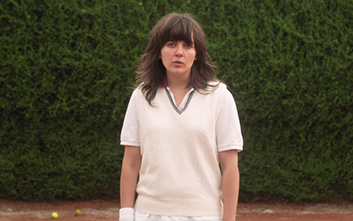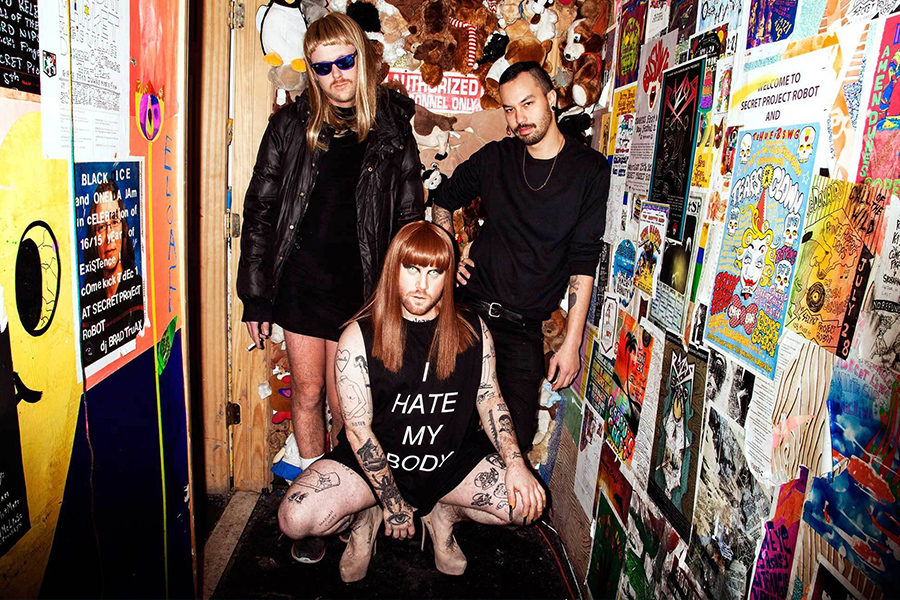When listening to music, it’s no secret that love and sex often take the best tunes to the next level in terms of artistic depth. They’re fairly dependable themes to rely on when singing about the human experience – you’d be hard pressed to find an audience that didn’t relate to a song about carnal lust, the longing for companionship, or the emotional turmoil the heart can cause.
Unfortunately this universal experience is not told universally in most of the music industry. For queer people, finding music that speaks to their experiences can be a surprisingly difficult task.
As more and more queer artists begin telling their stories through their work, could the age of ‘risky’ LGBT music-making be coming to an end?
The lack of representation is somewhat baffling; it’s not like there is a lack of queer talent in the creative industries, and the experiences of many queer people should – on paper anyway – be a gold mine in terms of thematic and emotional concepts to explore through music.
Much of the rationale comes down to commercial interests, and the idea that heteronormativity sells, but it doesn’t take a genius to realise that this way of thinking is a little dated.
The push in recent years to end the whitewashing of Hollywood, and to increase diversity in representation on the golden and silver screens are testament to the fact that audiences aren’t just open to creative material that challenges the “regular” – they’re actively seeking such content.
Although many queer artists have dominated the music scene for decades, rarely have they been allowed to discuss their identities in real life or in their music. Many who have made their identities a part of their music were delegated to the alternative music scene – however, in today’s world of digital connectivity, this isn’t a musical burn notice anymore.
The advent of the internet, and of platforms such as YouTube, Spotify, and Soundcloud, have given musicians previously considered too niche by much of the industry a way of reaching audiences on an unfathomable scale.
The past decade and a half has seen a sharp rise in queer themed music being produced across much of the western world, particularly in the United States and the United Kingdom. The movement came to a head in 2014, when Sam Smith won four of the six Emmy awards he was nominated for after the release of his debut album In The Lonely Hour.
Although Smith’s achievement was unprecedented, it would be remiss to ignore the growing number of artists being recognised for their musical talent in spite of the fact that their songs explicitly reference queer issues.
Mike Hadreas, better known as Perfume Genius, has greatly expanded his profile since he first premiered on MySpace in 2005.
He has released three albums to date, each receiving increasing amounts of critical acclaim; his particular style of indie pop is ethereal and melancholy, with a tragic beauty indicative of genuine suffering and redemption. However, queer artists aren’t simply restricted to pop and alternative music.
In the punk scene, we find bands like the New York based bottoms (fabulously pictured at the head of this article) whose very name suggests a rejection of heteronormative condemnation of femininity. Unafraid to sing about topics such as self-hate, shame, and HIV, their electronic infused style of punk is frank, aggressive, and wholly refreshing.
In 2012 Frank Ocean, easily one of the contemporary R&B scene’s most popular artists, confirmed that his song Forrest Gump from the critically acclaimed album Channel Orange was about a man he’d had an unrequited crush on in his teens. His announcement was extraordinarily significant given the homophobic reputation of the R&B industry’s culture.
Sadly, the scales tend to tip in favour of gay and queer men in terms of representation, but that doesn’t mean women haven’t had their fair share of the limelight as well.
Sia, who has always been open about her sexuality and romantic attraction to people regardless of gender, has experienced a steady rise to fame amid depression, drug abuse, and emotional anguish.
Perhaps the most obvious queer woman to hit the big time in recent years, is Triple J’s darling Courtney Barnett. An open lesbian, Barnett has been in a relationship with fellow muso Jen Cloher since 2011. Her songs, notable for their eclectic and rambling lyrical prose, often regale explicit references to her relationships with women and to her sexual identity.
Having achieved mainstream international recognition and fandom for her music, Barnett has shown that audience attitudes are changing towards “alternative lifestyle” – they’re no longer commercially unviable.
As time goes on, it becomes increasingly clear that commercial viability is no longer a valid reason to avoid queer representation in the music industry. The change is inevitable; we can already see it happening.
Previously defined by campy artists such as Gloria Gaynor, Cher, Barbara Streisand, Queen, and Madonna, the queer presence in the music scene is finally being filled by artists who can and will address the issues they want in the way that they want to.




